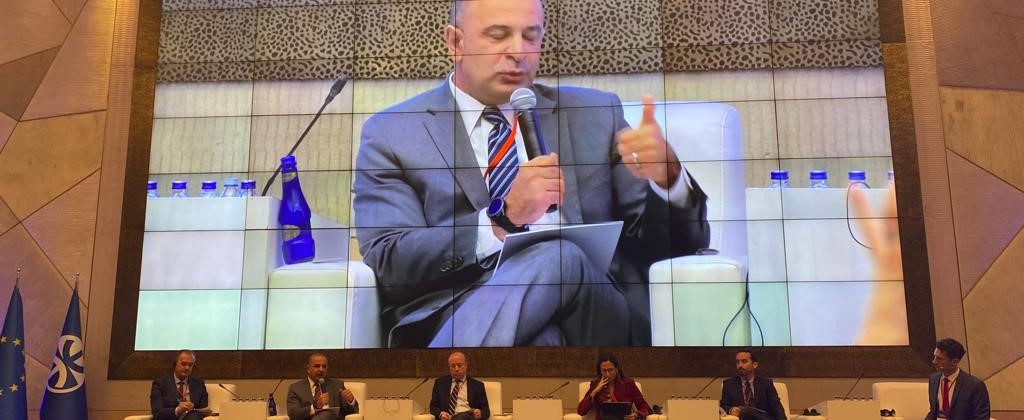Deputy Minister of Planning and Economic Development participates in MENA-OECD meeting on promoting sustainable economic development

06 November 2022
Dr. Ahmed Kamali, Deputy Minister of Planning and Economic Development, participated in the meeting of the MENA OECD Working Group on Promoting Sustainable Economic Development through Investment and Trade.The meeting was held in Turkey with the participation of some high-level officials from the Middle East and North Africa, representatives of the private sector, and international and regional institutions.At the meeting, Dr. Ahmed Kamali reviewed the efforts of the Egyptian state. This led to the resilience of the Egyptian economy in light of shocks and global economic instability.Dr. Ahmed Kamali referred in his speech to the proactive measures taken by the Egyptian government to mitigate the negative effects of Coronavirus on the Egyptian population and economic sectors most affected.Kamali explained that among these measures, support for irregular employment and the allocation of EGP 50 billion to finance projects for families with limited incomes, improving the conditions of pensioners, and increasing the annual bonus for workers to EGP 35 billion.Kamali also reviewed the measures taken in the industrial sector to deal with the pandemic. He explained that natural gas prices have been reduced, and electricity prices for heavy and medium industrial uses have been reduced.Kamali pointed out that electricity prices will remain unchanged for other industries during the next 3-5 years, in addition to postponing the payment of the real estate tax imposed on factories and tourist facilities for three months.The banks also postponed credit maturities for medium, small and micro enterprises for 6 months.Regarding the banking and financial sector, Kamali referred to the Central Bank of Egypt's announcement of launching a share purchase program worth 20 billion pounds.Kamali touched on the Central Bank of Egypt's decision to cut interest rates by 3%. In addition, the bank launched a new initiative to relieve debt burdens for individuals at risk of default.Dr. Ahmed Kamali pointed to the measures taken by the Egyptian state in the health sector and the financial budget for the fiscal year 2019/2020, referring to the government’s decision to allocate 1 billion pounds to the Ministry of Health to continue purchasing basic medical supplies, in addition to an additional amount of EGP 3.8 billion to raise the capacity of the health sector in all governorates of Egypt.Kamali stressed that the economic reform program implemented by Egypt in 2016 helped provide the necessary financial space to bear the negative impact of the COVID-19 crisis.Kamali added that in 2021, the National Structural Reform Program was launched to enhance economic efficiency and support the achievement of more inclusive and sustainable growth.The OECD country program is also designed to support structural reforms in Egypt. To explain, supporting the implementation of the National Structural Reform Program (NSRP)will increase GDP and the balance of payments, as well as job opportunities.Kamali stressed that supporting the development of the digital economy in Egypt aims to improve the quality of life of Egyptian citizens by utilizing the necessary skills and competencies. This will promote a diversified economy and a globally competitive workforce.Kamali added that Egypt is being supported on its way to achieving Egypt's Vision 2030. This is done by strengthening the frameworks governing the implementation and financing of sustainable development goals with a special focus on the circular economy and decent jobs.Kamali referred to the state ownership document and the state's plan to exit state-owned companies to restructure the economy in favor of the private sector, in addition to adopting a flexible exchange rate system with priority given to price stability and building sustainable and sufficient levels of foreign reserves.









